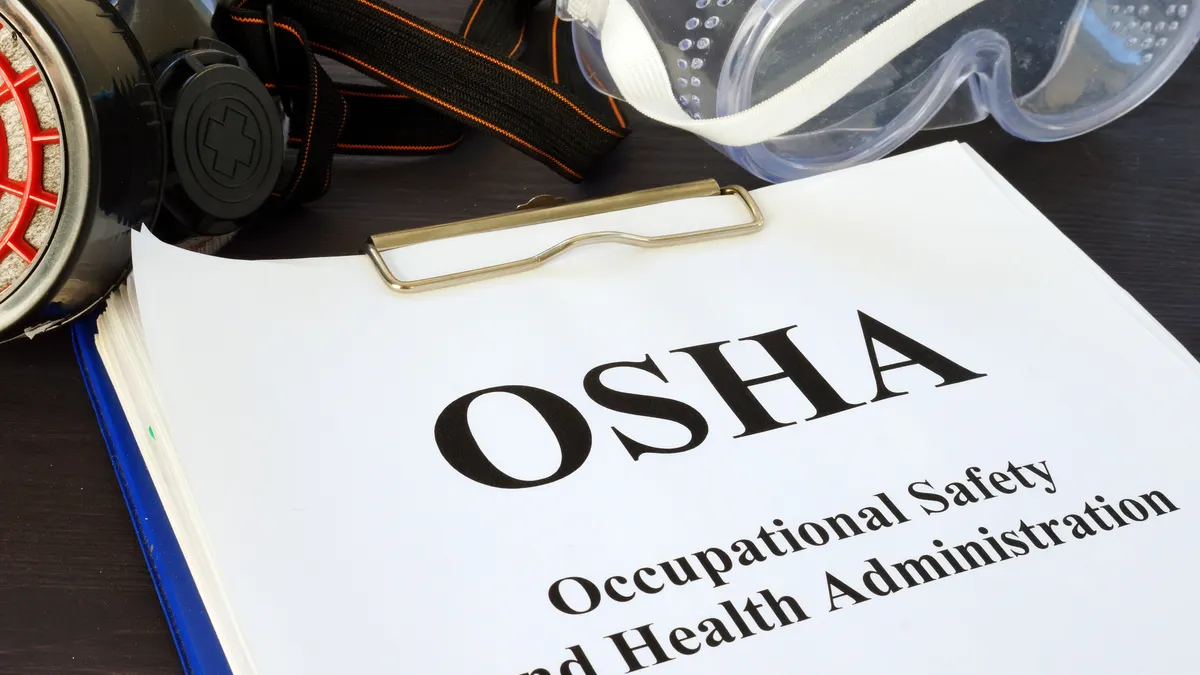Dive Brief:
- OSHA has proposed a rule to change the way it wields the General Duties Clause, that would exclude enforcement for known hazards "inherent and inseparable from the core nature of a profession activity or performance."
- The Occupational Safety and Health Act of 1970’s Section 5(a)(1) states employers must create a workplace “free from recognized hazards that are causing or are likely to cause death or serious physical harm.” The General Duties Clause is used to cite employers where no existing standard provides specific rules on how to protect workers.
- This new rule change, proposed July 1, would narrow the General Duties Clause, specifically for athletic or entertainment occupations. Still, the proposal invites commenters to indicate other industries that could benefit from the rule narrowing.
Dive Insight:
“[The General Duties Clause] was never intended to be a default regulatory device by the government,” said Tampa, Florida-based Phillip Russell, OSHA and employment lawyer, litigator and advisor for Ogletree Deakins. “In regulating an entire industry, Congress needs to be more specific in its delegation of authority.”
Russell said he believes the change will go beyond the entertainment sectors listed in the proposal.
In construction, a General Duties Clause citation could be used for something such as a worker injury or death due to extremely high temperatures — in the continued absence of a heat safety standard — or other external factors over which an employer has little control, such as a speeding vehicle entering a work zone.
The proposed shift stems from a 2014 court case, SeaWorld of Florida, LLC v. Perez, where the U.S. Court of Appeals for the D.C. Circuit upheld an OSHA citation requiring SeaWorld to abate the hazard of trainers exposed to close contact with orca whales during performances. The dissenting judge in that case was current Supreme Court Justice Brett Kavanaugh.
Although OSHA technically won that case, the agency is now saying it agrees with Kavanaugh’s view. At the time, Kavanaugh wrote that the Congress that passed the OSH Act had to have known about hazards in athletic and entertainment professions, such as boxing or working at the circus.
The vague wording of the General Duties Clause, Kavanaugh argued in 2014, shouldn’t grant the Department of Labor the authority to eliminate obviously hazardous aspects of a profession, such as dangerous punt returns or driving at high speeds in Nascar races.
Basically, Russell said, the General Duties Clause is used too broadly according to this rule change.















